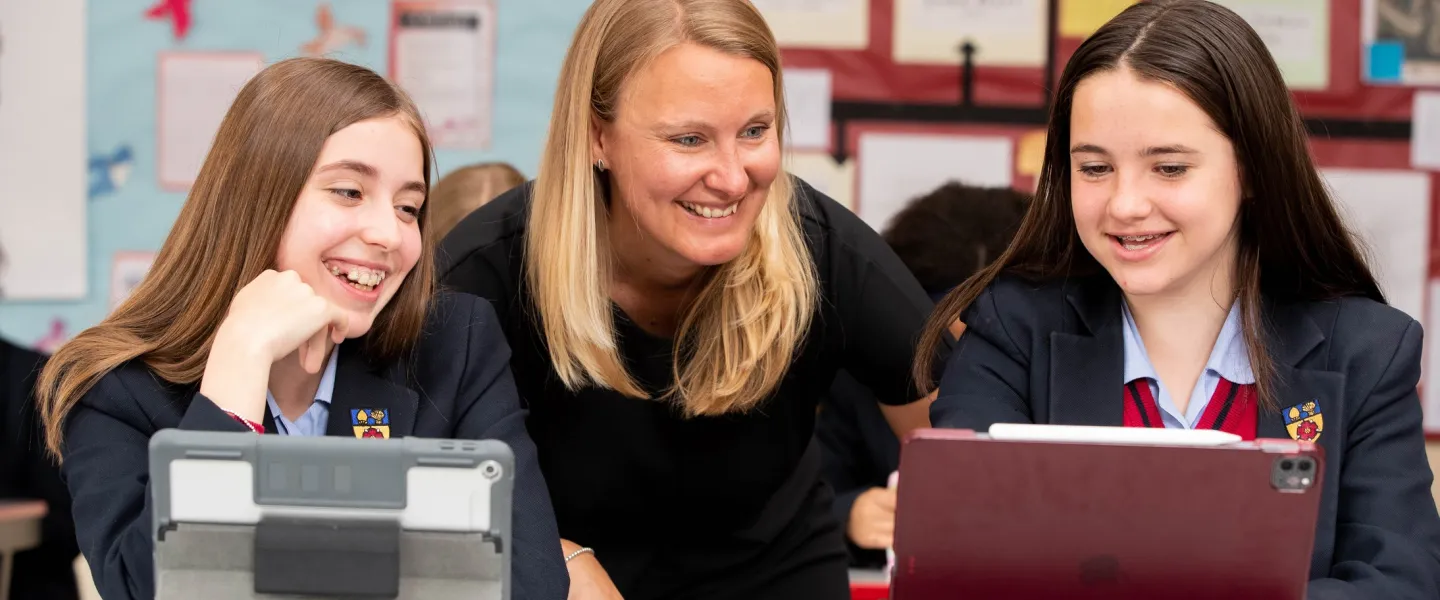The last two years have been tough for everyone, in different ways and for different reasons. But one thing that has made life a little bit easier has been technology. I was at school doing my own GCSE exams in the mid-1990s and more than once I have tried to imagine what lockdown-1995 might have been like?
No Zooming or Virtual Learning Environments to deliver slick, remote learning in 1995! If you were one of the 0.04% of the population tech-savvy and lucky enough to have internet access in 1995 then you would have been accessing it via a painfully slow dial-up connection on a machine probably running Windows NT. There were 23,500 websites to choose from. That might sound a lot, but not when you compare it to the over 1.7 billion websites online today.
No video group chats with your friends at break time either! Your 1995 Nokia 100 or Motorola 7500 couldn’t cope with that. If you wanted to call – yes just call – one friend at a time that was just about all mobile phones did back then. That’s if your friend also had a mobile phone for you to contact them on. Not a given in 1995. Otherwise you’d just have to stick to the landline and fight for your turn with your sister, brother, mum, dad, dog, budgie etc.
What about filling those hours at home with a boxset binge or rewatching your favourite movie franchise? Well, only if you happened to have it available at home on VHS videocassette. In 1995 we had no streaming, no DVDs, and only four (yes four!) TV channels to choose from.
And worst of all – lockdown 1995 would have meant no Saturday night virtual quiz – how would we have survived!
Well survive, I am sure we would have, but I do think it would have been even more challenging than the two years we have faced circa 2020. As well as allowing us to learn, communicate and entertain ourselves during lockdowns, technology has played a vital role in developing the monitoring systems, Government communications, testing, tracing, vaccination and health systems that have all played such a crucial role through the pandemic.
Reflecting on 1995 really highlights how far we have come so quickly and the impact that technology has on all our lives. That is why it is more important than ever that young people are engaged and excited to learn about technology and computer science in school.
The learners of today will go on to work in organisations where networks, databases and websites are the backbone of the organisation – central to everything. The learners of today will go on to roles that must address the huge global challenges of the day – climate change, future pandemics, feeding a growing world population - and technology and computer systems will be important tools to help find solutions. The learners of today will be fed by farms, get news from websites and get power from facilities all run on algorithms. The learners of today will have to deal with ethical issues such a privacy, free speech and AI – issues that will have huge implications for the future. And the learners of today will have to make sure it is all secure – with so many of our essential services online, the cyber threat has never been greater so the need for effective cyber security has never been more.
For all these reasons and many many more, learners, and girls, in particular, have so many opportunities open to them. Opportunities for exciting and rewarding careers in tech; opportunities to apply technology skills in every workplace and every career; opportunities to change the world and make it a better place.
In 1995 I took a GCSE called Information Systems and it opened my eye to a world of computers and technology that was growing, changing and developing at a thrilling speed. Today, if anything the speed of change and the impact of new developments is even greater. Let’s make sure all of our young people have the skills and the enthusiasm they need to make the most of being a part of it.
